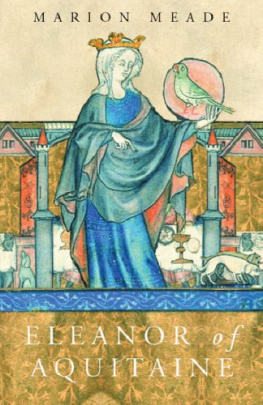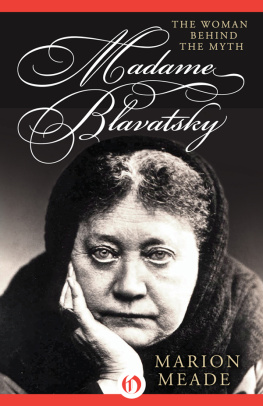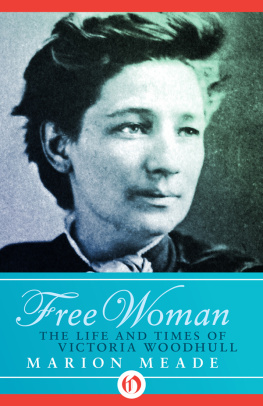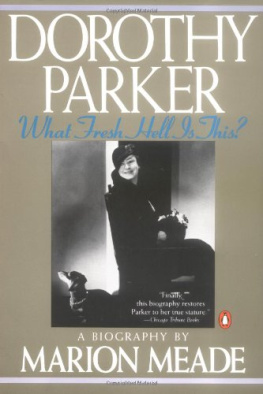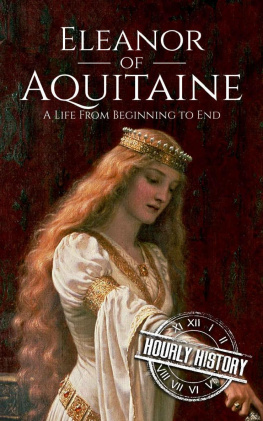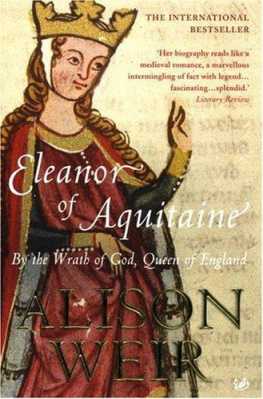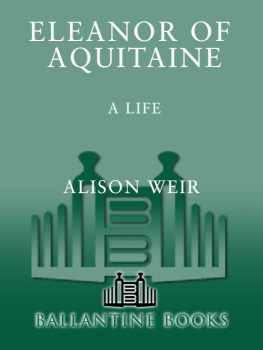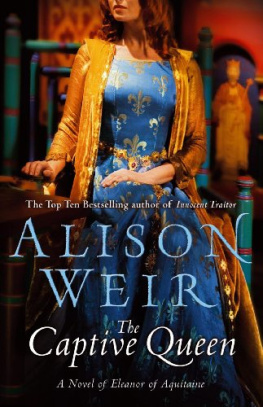Table of Contents
PENGUIN BOOKS
ELEANOR OF AQUITAINE
Marion Meade is the author of Free Woman: The Life and Times of Victoria Woodhull, Sybille, and Dorothy Parker: What Fresh Hell is This?
PENGUIN BOOKS
Published by the Penguin Group
Penguin Group (USA) Inc., 375 Hudson Street, New York, New York 10014, U.S.A.
Penguin Group (Canada), 90 Eglinton Avenue East, Suite 700, Toronto,
Ontario, Canada M4P 2Y3 (a division of Pearson Penguin Canada Inc.)
Penguin Books Ltd, 80 Strand, London WC2R ORL, England
Penguin Ireland, 25 St Stephens Green, Dublin 2, Ireland
(a division of Penguin Books Ltd)
Penguin Group (Australia), 250 Camberwell Road, Camberwell,
Victoria 3124, Australia (a division of Pearson Australia Group Pty Ltd)
Penguin Books India Pvt Ltd, 11 Community Centre, Panchsheel Park,
New Delhi110 017, India
Penguin Group (NZ), 67 Apollo Drive, Rosedale, North Shore 0745, Auckland,
New Zealand (a division of Pearson New Zealand Ltd)
Penguin Books (South Africa) (Pty) Ltd, 24 Sturdee Avenue, Rosebank,
Johannesburg 2196, South Africa
Penguin Books Ltd, Registered Offices: 80 Strand, London WC2R ORL, England
First published in the United States of America by E. P. Dutton
Published in Penguin Books 1991
Copyright 1977 by Marion Meade
All rights reserved.
eISBN : 978-1-101-17393-0
The scanning, uploading and distribution of this book via the Internet or via any other means without the permission of the publisher is illegal and punishable by law. Please purchase only authorized electronic editions, and . do not participate in or encourage electronic piracy of copyrighted materials. Your support of the authors rights is appreciated.
http://us.penguingroup.com
The proper study of mankind is woman and, by common agreement since the time of Adam, it is the most complex and arduous.
Henry Adams
Mont-Saint-Michel and Chartres
The family of Eleanor of Aquitaine
Preface
It is one of the paradoxes of history that those persons commonly believed to wield the least political power may sometimes exert the greatest force on the course of human events. Although Eleanor of Aquitaine, queen of France and later of England, lived at a time when women as individuals had few significant rights, she was nevertheless the key political figure of the twelfth century. At the age of fifteen she inherited one-quarter of modern-day France, but since women were thought unfit to rule, her land as well as her person were delegated to the custody of men. Her whole life thereafter became a struggle for the independence and political power that circumstances had denied her, although few of her contemporaries could realize this.
The historical record, written to accommodate men, has assigned women whom it could not ignore into three classic categories: wife, mother, and whore. Eleanor of Aquitaine can be found in all three, even though her life represented much more. It is true that she was the wife of King Louis VII of France and King Henry II of England, as well as the mother of one of Western civilizations great heroes, Richard Coeur de Lion, and also of one of the great villains, King John. Nevertheless, she did more than marry and bear children, and as the eminent historian Bishop William Stubbs wrote, Few women have had less justice done them in history than Eleanor. That she has been judged a bitch, harlot, adulteress, and monster is not surprising, for she was one of those rare women who altogether refused to be bound by the rules of proper behavior for her sex; she did as she pleased, although not without agonizing personal struggle. Her admiring contemporary Richard of Devizes may have called her an incomparable woman, but for the most part history has not agreed on how to deal with her. For Shakespeare she was a cankerd grandam, a monstrous injurer of heaven and earth who should be remembered for her sin-conceiving womb. In the Carmina Burana, an anonymous German scholar, haunted by a passing glimpse of Eleanor, saw her as the ultimate sex symbol:
Were the world all mine,
From the sea to the Rhine,
Id give it all
If so be the Queen of England
Lay in my arms.
As an aggressive woman who never willingly allowed herself to become the victim of circumstances and who exercised power over the most important men of her time, Eleanor presented an image of femininity so at variance with the accepted subordinate role ordained for her sex that people could only conclude she must be a demon. In the years immediately following her death, the remarkable length of her life-span inspired a number of legends, all of them entirely derogatory. In the thirteenth-century romance Richard Coeur-de-Lion, she is a beautiful demon who refuses to attend Mass or partake of the Sacrament and, when forced to do so, flies out the window. The French writer Philippe Mousks (Chronique Rime) quotes her as saying to her barons after her divorce from the pious and sexless Louis VII: Look at me, gentlemen. Is not my body delightful? The king thought that I was the devil. To the Minstrel of Reims, she remained a very devil, a woman so depraved that she would be capable of attempting an elopement with the Moslem ruler Saladin. The calumnies of Eleanors contemporaries continued to pursue her throughout the centuries as balladeers used her legend to fashion popular songs: in Queen Eleanors Confession she is an adulteress and the mother of an illegitimate child by William Marshal; in The Ballad of Fair Rosamond she becomes a murderess, while the adulteress Rosamond Clifford is cast in the role of a sweet unfortunate victim.
Apart from Eleanors portrayal in folklore, professional historians have treated her as either a mere shadow of her husbands or as an accident among the important activities of men. The English historian John Richard Green in his Short History of the English People devoted forty pages to the reign of Henry II, and in these Eleanor is mentioned only four times; French historians also make short shrift of her as a naughty wife or the owner of valuable real estate. The fact is, she was in her own right a political person of the highest importance. Her decision to divorce the king of France and her remarriage to Henry Plantagenet overthrew the balance of power in France and England, producing a disruption that required 300 years of warfare to remedy. Her quarrels with her second husband and her subsequent support of her sons in their rebellion against Henry spread confusion and dismay throughout western Europe. Henrys death and the accession of Richard brought her to supreme power, and as Coeur de Lions representative in England during the Third Crusade, she repressed the ambitions of John while at the same time thwarting the designs of Philip Augustus. At Richards death, it was entirely due to her efforts that John reached the throne. Despite her association with these four kings, she struggled to retain her own identity, and it is a measure of her success that 772 years after her death she survives not as Queen Eleanor of England or Queen Eleanor of France but simply as Eleanor of Aquitaine.





